Goats get colds too! This is how I help my goats recover quickly when they have a runny nose or signs of a cold.
Last month, we walked out to the goat pen as usual to do the morning feeding and milking chores. We noticed that one of our goats, our mini lamancha wether Bug, had a runny nose. I did a quick herd check and saw three other goats who also had a decent amount of discharge from their noses.
Oh man…
Respiratory issues aren’t something that I mess around with when it comes to our goats! Pneumonia is known as the “silent killer” because it can strike so quickly and often without much warning. If you aren’t aware of what to look for, a seemingly healthy goat can succumb to it very quickly! This is why I take action as soon as I see any signs of respiratory illness. Some may say it’s extreme, but hey, these goats are my babies and I will do everything in my power to make sure that they are as healthy and happy as possible.
** I may receive a commission at no additional cost to you from purchases made through links in this article. Full Disclosure Link **
Respiratory illness in goats – What to watch for:
Let me start by saying that a runny nose isn’t necessarily indicative of an illness. Goats, like humans, can develop a runny nose from any number of things, including a sudden change in weather or environmental allergies. A small amount of clear nasal discharge is usually nothing to worry about. However, a thick cream to yellow colored discharge can be a sign of infection or pneumonia. Discharge from the eyes, reduced appetite, hunched body posturing and reduced activity levels are also telltale signs of an illness that shouldn’t be ignored.
In the same manner, a cough can also be completely normal. Goats often make a coughing or “hacking” noise when they are getting their cud. Once you know your goats well, you can usually tell the difference between a “cud cough” and an abnormal cough. However, excessive coughing and coughing that occurs after physical activity could be a sign of health problems. The most common cause of an abnormal cough in goats is lungworm. Lungworm is usually treated with Ivermectin wormer. Lungworms are most common in the early spring and early fall when moist pasture conditions exist and new plant growth is sprouting.
What we did for our goats with runny noses:
Let me start by prefacing that I have known of several goats who have lived their entire lives in a pasture without much shelter or human interaction and were perfectly healthy. For whatever reason, our goats are not like that! They are generally very healthy but they also think that they are going to melt during the slightest rain shower and demand that we deliver their hay directly to their sleeping bunks so they don’t have to stand up. Yeah, fat chance, goat!
While I try not to baby my goats (too much!), I also like to know that they are well-maintained. I like to treat my goats using as natural of supportive therapies as possible. But I also use commercial wormers and other items when needed. Whatever your view on goat care is, I think we ultimately all want the same thing: healthy, happy and productive animals.
Please be aware of the fact that I am not an animal medical professional and that this post is intended to be informational. I am simply sharing my own experiences and results. They are in no way intended to be taken as medical advice or a treatment plan. Fellow knowledgable goat owners who share their wisdom are absolutely invaluable. So is a good vet who is well-trained in goat health. Always contact a vet for medical advice if you are unsure of how to proceed.
All that being said, here is how we handled the snotty-nosed goat situation:
Step 1: Observe Goats and Environment
The first and best thing any animal owner can do is to observe your animal on a daily basis. Observation should always come before action. You can gather a lot of information through visual observation. If I notice anything abnormal, I like to write it down. That way I have a log and can more easily remember when and what was observed. By monitoring each day, you will be able to act quickly and provide valuable information to your vet if conditions worsen.
When I observed my herd in the days following the discovery of the runny noses, some things that I paid special attention to included:
- Nasal discharge color
- Amount of discharge
- Any coughing
- Decreases in eating and drinking
- Acting lethargic or laying down
- Changes in activity level
- Hunched posture
- Time of day when symptoms were the worst
In the case of my goats, their behavior was normal. They were eating, drinking and playing as they usually do. One of the goats was coughing a bit more than usual, but not excessively. Our goats were wormed with Ivermectin about a month prior and it would be very late in the season to be seeing signs of lungworm due to our freezing temps. As for their noses, only four had nasal discharge. The discharge was mostly clear, but in larger amounts than normal. Two of them had slightly thicker, whitish discharge compared to the other two.
In addition to observing my goats, I also check their shelter and pen for anything unusual. I checked for dampness or draftiness in their shelter. There had been a sudden change in our weather and the temps dropped considerable and rain had been falling off and on for a couple days before the runny noses appeared. Since the overnight temps were freezing, there weren’t any new plants blooming, eliminating my concerns about seasonal allergies. We also always double check their hay before we feed it to be sure it’s free of mold and mildew.
Step 2: Clean Up Goats and Shelters
After observing, I cleaned up my goats’ noses using a warm damp cloth. A goat’s nose comes into contact with a lot of surfaces, including their feed, water and other goats! The though of them wiping that snot all over their little friends is enough to get me out to their pen a couple times a day to wipe their noses. It also allowed me the chance to see when they had the most discharge and to monitor the amount of discharge. I noticed that they would have the most discharge in the mornings. This indicated that the sudden drop in overnight temps probably had something to do with their runny noses.
Good ventilation is a key to proper goat housing. Proper ventilation allows air to circulate and be exhausted without creating a draft. Keeping bedding as dust-free as possible will also help avoid respiratory illnesses. As bedding becomes soiled and wet from urine, the ammonia can sometimes irritate a goat’s respiratory system. We regularly change bedding every week to two weeks depending on conditions, but since there was so much rain, I went ahead and mucked everything out and laid fresh bedding. I also left the doors open that day in order to air out their shelter and then closed the doors in the evening when temps started to drop.
Step 3: Take Temps
After getting my goats cleaned up, I popped them on the stanchion one by one so that I could get a rectal temp on each one. A healthy goat body temperature is around 101.5 – 103.5OF. A high temp is an indicator of infection. Luckily, all my goats had normal temps, and I breathed a sigh of relief!
If my goats had ended up having elevated temperatures, I would have contacted our vet to have her come out for a herd check. It’s very important to start treating an infection or illness with prescribed antibiotics as soon as possible for the best outcome. Since my goats didn’t have high temps, I continued to monitor them. If their symptoms hadn’t improved, I would have continued taking temps on a regular basis, because the sooner an infection is caught, the easier it is to treat!
Step 4: Use Supportive Therapies
Since my goats all had normal temps, I knew they didn’t have pneumonia or another infection. However, I also know that a small cold does have the chance of developing into something more, which is why I do everything I can to avoid that outcome! A few simple supportive therapies can help boost immune system functioning and help them get back to normal more quickly.
Hay:
Ruminate animals are very unique in the fact that they ferment their food. The fermentation process gives off gasses and heat. You can think of your goat’s rumen like a furnace. The more roughage they have, the more things will heat up! While my goats were fighting off their colds, I gave them a couple extra flakes of hay each day to help keep them stay nice and warm.
Vitamin C:
Vitamin C is well-known for it’s helpfulness in kicking a cold! Because goats are awesome, they actually produce their own Vitamin C. In fact, when animals, such as goats, face stressful events or illness, their Vitamin C production actually increases! If only we humans could do the same! Vitamin C can help with a myriad of things, including absorption of other minerals and vitamins. Vitamin C may even be an effective treatment for mastitis!
Even though goats produce their own Vitamin C, it can be helpful to give them an extra boost during weather changes and when they show signs of a cold. Vitamin C is water-soluable, so any extra that isn’t absorbed is excreted in the urine, so it’s generally a pretty safe supplement to give.
You can purchase chewable Vitamin C tablets at the store, but I find they contain a lot of additives and flavoring. For this reason, I steer clear of them. Rose hips are a great natural alternative! A cup of rose hips contains around 550 mg of Vitamin C and are generally palatable to goats. During weather changes and cold snaps, I like to give my goats a cup of rose hips along with their hay a couple times a week. When a goat shows signs of a cold, I feed that goat a couple extra tablespoons of rose hips twice a day.
Buy Rose Hips Here!
In the event that you don’t have any rose hips on hand (although I recommend stocking it for both you and your goats!), you can instead give your goat a regular Vitamin C tablet. This happened to be the case when my goats developed runny noses (because you always run out of things right before you need them!). I’ve heard that some goats crunch down Vitamin C pills without hesitation, but mine sure don’t! Instead, I crunch up two 500 mg Vitamin C pills and hide them in a “goat pill pocket”. I combine the powdered pill in a mixture of natural peanut butter, organic black strap molasses (contains iron & copper!) and a bit of grain and roll it into a ball. It’s time consuming, but the goats love them! I fed the Vitamin C pill pockets to everyone in the herd every other day for the week, until I saw the runny noses improve.
*Consult a veterinarian before giving Vitamin C supplements to a pregnant doe.
Nutridrench:
This is another item I always keep in my goat medicine cabinet. Nutridrench is basically a concoction of vitamins, trace minerals and electrolytes, and is a great supportive therapy for a variety of illnesses, injuries, or stressful events. It’s easy to administer orally using a syringe and the goats usually don’t mind the taste of it. I gave about 10 cc to each of my goats that were showing signs of runny noses.
Buy Nutridrench Here!
VetRx:
VetRx is another natural first aid item that I always keep on hand. It has become very popular among backyard chicken keepers, but goat owners have also been using it for years. There is even a VetRx formulation for goats and sheep! To my understanding, all the VetRx formulations are similar, so there is no need to fear if you can only find the poultry version at your local feed store. But if you do want to purchase the goat and sheep formulation, I have listed a link to it below.
It’s recommended to give goats three drops of VetRx in each nostril four times a day. Yeah… have you ever tried dropping something into a goat’s nose? It’s definitely not easy! I generally try to get a few drops in each nostril and repeat daily until symptoms improve. I’m pretty happy if I can accomplish that without squirting half the bottle all over myself while my goat squirms as if I’m trying to pour poison down their nose. I would highly suggest using a stanchion and having a helper hold their head while you put the drops in their nose!
Buy VetRx Here!
The Results:
Following the treatments above, I was so happy to see my goats make a full recovery in about ten days. No more snotty noses or coughing! They have been healthy and happy ever since, even as the outdoor temperatures continue to drop. Yes, sometimes I feel like it may be overkill to do all of the above items at the first sign of a snotty nose, but I certainly would prefer to give my goats a little extra love and support to make sure they have a great chance at recovering quickly.
**Disclaimer (aka “don’t sue me”): Information on this site is intended for educational purposes only. It is not intended to be used to diagnose, treat, prevent or cure any illness or disease, both for people and animals.Always seek professional medical attention.**
Do you have good tips or tricks that have helped your goats recover from a cold? Share in the comments below!
If you like then you better put a pin on it! Pin me!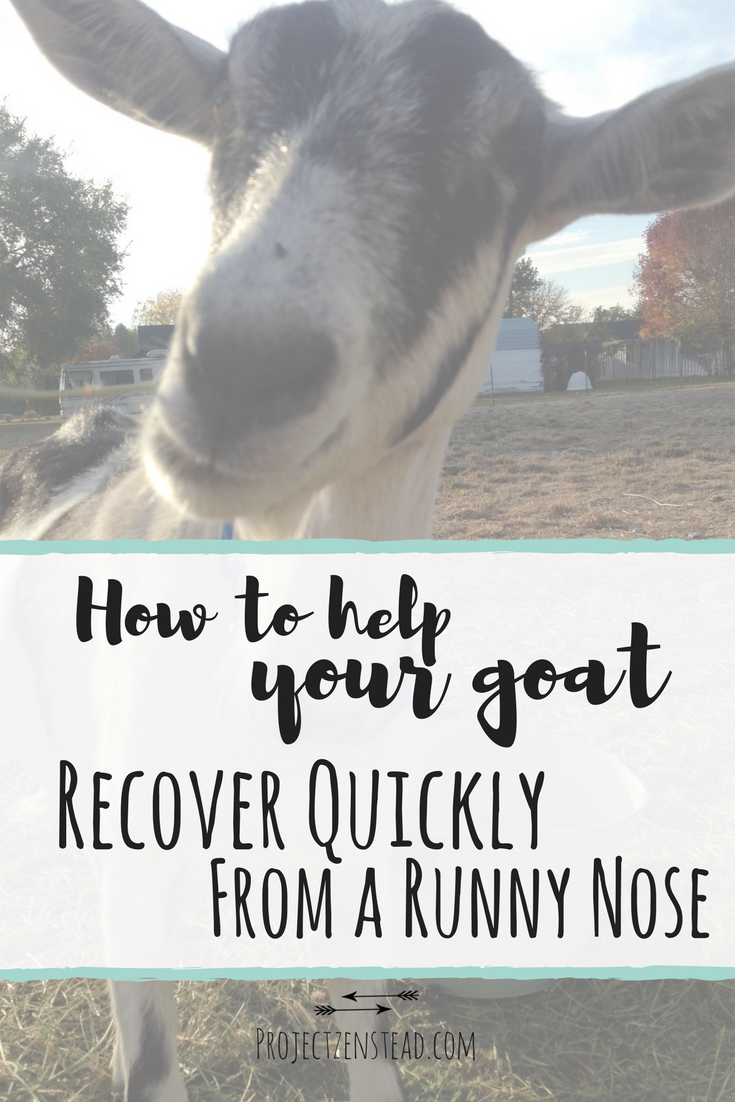
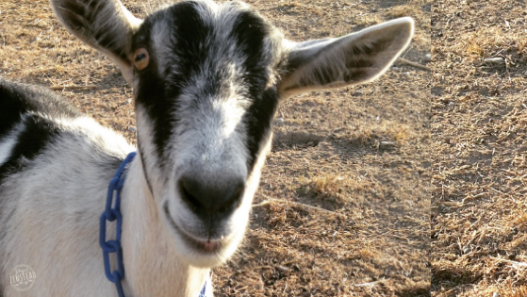







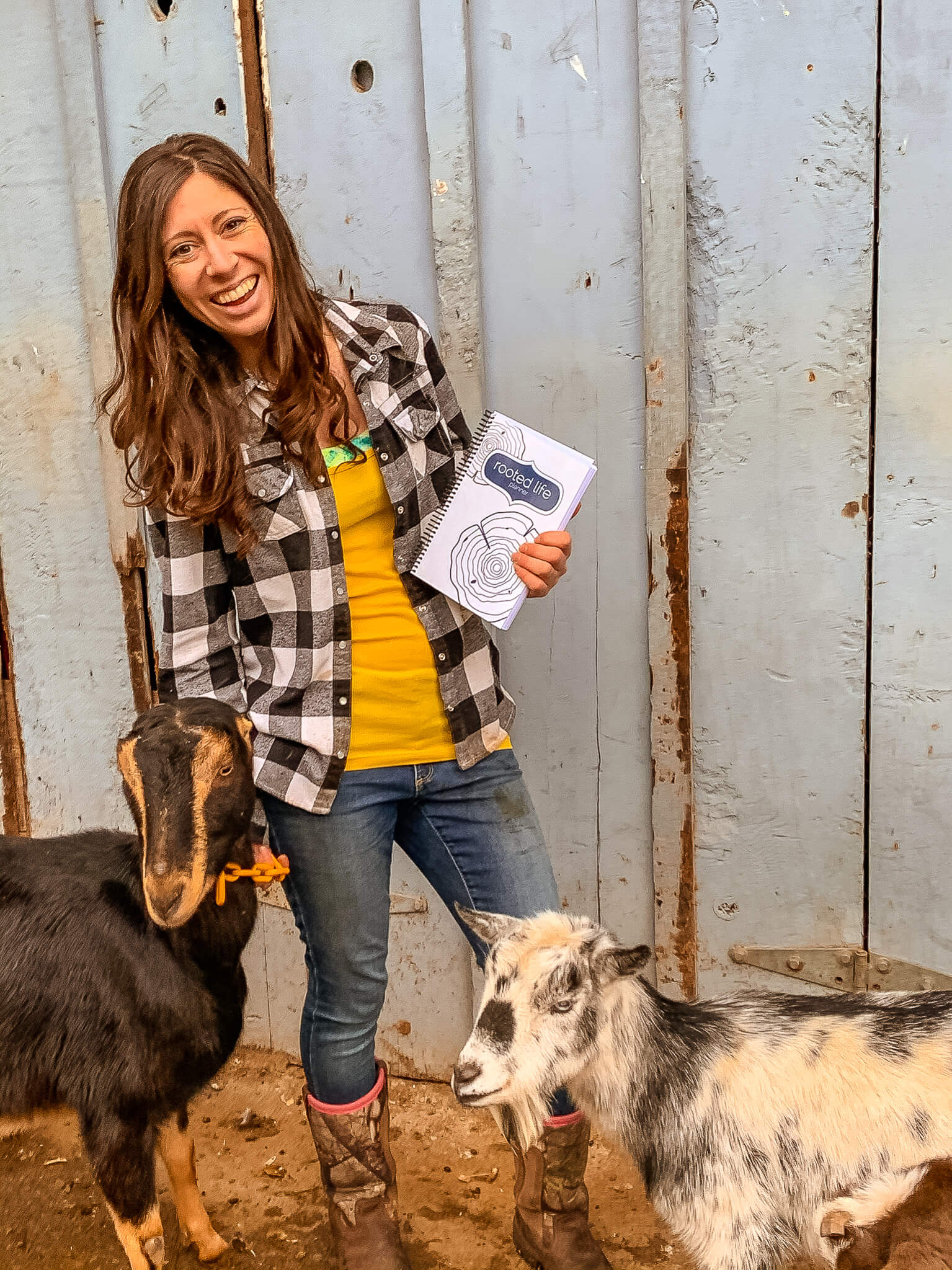


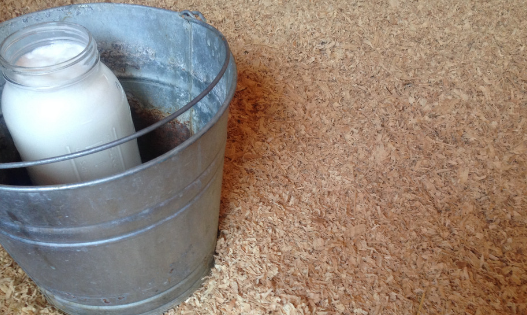
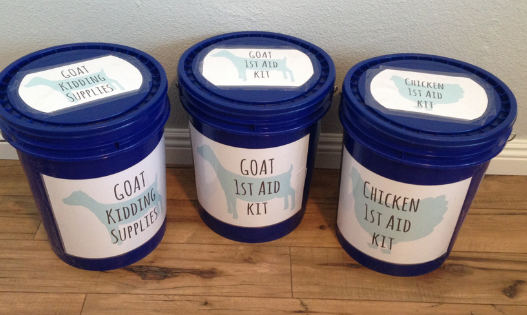
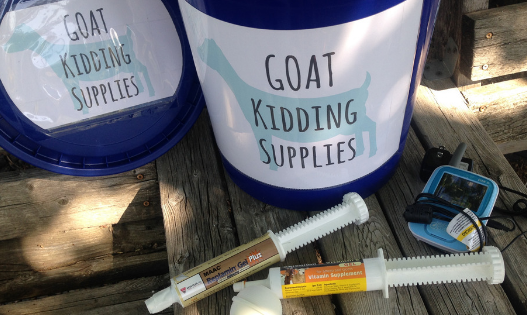
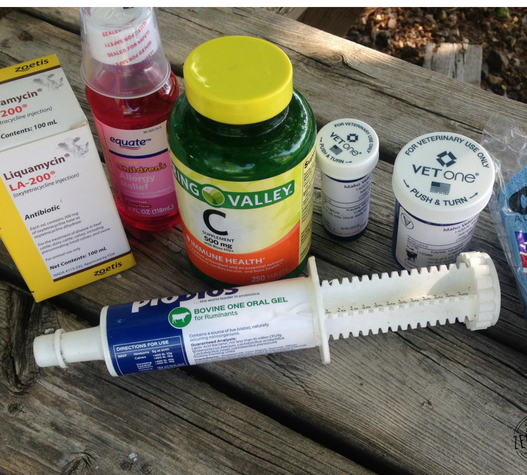
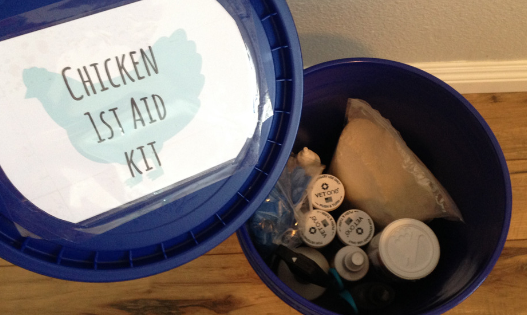
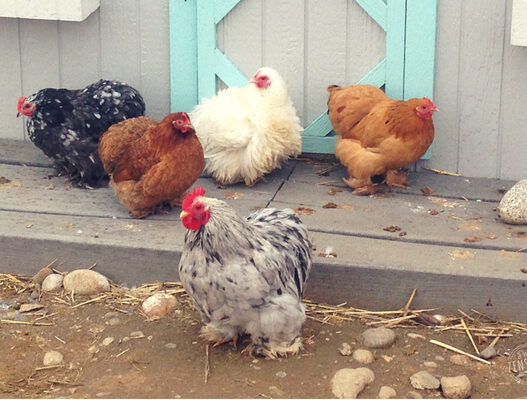
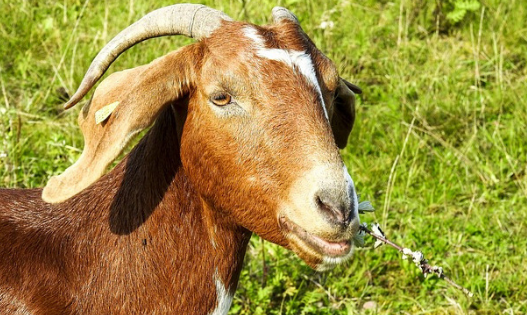
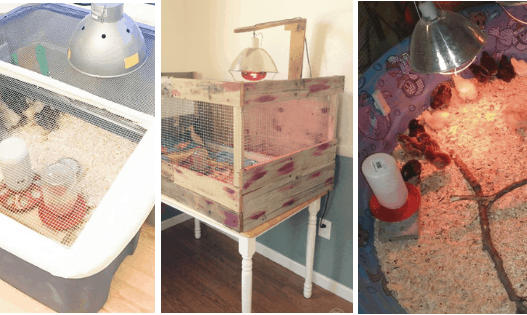
This information is very helpful. Thanks alot
You are welcome! I hope it helps!
very helpful essay! could you tell any other natural herb and things for cold diagnosis ?
my goats have always cold nose
I hope these tips help your goats!
Thank you so much, this is so helpful though can’t be found in Uganda.
I’m glad it can help you!
Thank you I’m going to start this today
I hope it helps! 🙂
I have a mother goat (age unknown) and her two kids which are now 2.5 years old. All three of them in the last year have had their rumens shut down for some unknown reason. I have had to take all three the UCD for a transfer of rumen juice from their donor goat to my goats rumen. The vets of course could not find a a reason for the problem. I have had goats in the same thirty acre pasture for over 30 years and never had a vet visit once. They were always healthy and lived long lives.
I got the mother who turned out to be pregnant from someone who was going to kill her. The vet said they might just have compromised immune systems. The mother is probably very inbred given where I got her. I give them a goat supplement (vitamins and minerals) daily. They have free range and I feed grass or oat hay. They have a goat mineral salt lick. My other goats never have had a problem. I wanted to give the three daily probiotics and enzymes but the vet said not to mess with their diet since I could cause problems with their rumen. I am wary to do anything but also wary not to give supplements. Any suggestions?
Boy that is a hard one! And I am so sorry that you have been struggling with it. Basically, young goats are born without an active immune system. So any immunity that they have in the first part of life comes from the mother through the milk, especially the colostrum, which is produced in the first few days after birth. So, it’s vitally important that goats get a healthy dose of colostrum from a healthy mother goat. This is why many goats who don’t receive healthy colostrum will exhibit failure to thrive and weak immune systems. This very well could be the case with your younger goats.
It sounds like you are doing a great job at being proactive in finding ways to preventatively help them. Consulting a knowledgable vet is so important and I’m glad to hear you’ve done that! *Full disclaimer – I am not a vet and my advice should not be interpreted as medical advice*
There are a few that came to my mind when reading your comment:
1. Definitely keep them up to date on their CD&T vaccines (given annually) if you are not already doing so. The vaccine can help provide long-term protection. The CD&T vaccine provides protection against tetanus and Clostridium Perfringens Type C & D. Basically, it is a toxin that exists in every goat’s rumen. However it is important to maintain low levels of it. If there is an imbalance, it can overload their system, causing their rumen to stop functioning. I would also recommend that you keep the CD antitoxin on hand since they are prone to having issues with their rumen. This is a fast-acting, short-lived antitoxin that you would give when immediate protection is needed (for instance, if they experience bloat, poisoning, compromised rumen/rumen shutting down). You can order it online from Jeffers or Valley Vet. It’s not cheap, but it could help save their lives.
2. The rumen is the power house of the goat! So, good rumen support is essential. This starts with high quality feed and browse along with minerals formulated for your region. I prefer loose minerals to block. Ours always have at least loose minerals in addition to a block and I find that they generally prefer the loose. It sounds like your goats already have a nice healthy selection of feed which is awesome!
3. Watch for signs and changes in their rumen function. Get a stethoscope so that you can listen for rumen noises. Also, be sure to watch them closely during stressful events (this can be anything from 4th of July fireworks to an especially rainy week! We even had one goat that would bloat every single time we shaved her for show!). Get to know them and their stressors so that you can catch any problems early on.
4. Keep Probios (the bovine formulation) on hand, if you don’t already. The paste is the easiest to administer and it will give them a boost of probiotics to help with rumen function. We use this regularly any time there may be stress or any reason for rumen upset (change of feed, etc.). You can also steal cud from a healthy goat and keep it in the freezer. Or just grab a fresh wad when your compromised goat needs it! Gross I know, but its one of the best ways to get your babies a fresh dose of healthy rumen organisms if their rumen isn’t working well.
5. I’m not sure what parasite management plan you use, but managing parasite load will be very important for any goat with a weak immune system. I would recommend doing fecal egg counts regularly. You can have your vet run them for you or you can get a microscope and learn how to do them at home.
There’s a million more things that I’m sure you can try. In the end, just do the best you can. Like people, some goats just aren’t as healthy as others unfortunately. And I know you are working with a vet, and I would never counteract what the vet recommends. But do what you think is best! If you decide to start giving probiotic supplements, make sure they are formulated for goats. Start slow with them and watch your goats for any signs of change to the rumen system. You are definitely on the right track by exploring new ways to help your goats. Bodies are complicated things and there is never one right answer for any one body. So continue to educate yourself and try out different support techniques while monitoring closely.
Wishing you all the best!
I have a baby boy Pygmy goat, and I just noticed a thick yellow/green mucus discharge from the nose that seems to be affecting his breathing. I’m just wondering if it is okay for me to clear it with a rag or if I should let it clear on its own?
Sorry to hear that! Yes, I would recommend wiping with a paper towel to clear the airway. I would also recommend taking a temp and watch carefully for signs of pneumonia, which can set in quickly in goats.
My goat is suffering with cold and not eating anything and sleeping or taking sunbath everytime and sneezing and having cough a lot which natural therapies should i gave him at home
I would highly recommend contacting an experienced vet or goat mentor if your goat isn’t eating. Upper respiratory illnesses can progress into more dangerous conditions like pneumonia.
My 16 year old pet Nubian has his cud coming from his nose. 2 rounds of Albon hasn’t changed it. He has no temperature and is eating well. He sneezes and coughs the cud up. Any suggestions?
Oh no – I’m sorry to hear that. It isn’t something that I have personally had experience with. Are you sure that it is cud? Does it only happen when the animal coughs up its cud as usual? Usually, cud coming out the nose is a sign of choke/blocked esophagus, sometimes bloat or even poisoning/ingestion of toxic material. Obviously some of those can be ruled out immediately since he seems to be fine otherwise. Megaesophagus can occur in animals and cause a weakening of the esophagus muscles… considering the age of the goat, I wonder if it might be an issue like that and it’s causing too much cud to come up and since there is a lot, maybe it’s just spilling out of the nose? Obviously, I’m not a vet and have very little info so I can’t say for sure. Definitely monitor the goat for any changes and contact a professional if things get worse. Keep us posted – would be interested to hear and learn more about this situation.
I AM NEW TO GOATS AND LOOKING FOR AS MUCH INFORMATION AS POSSIBLE. THIS IS VERY HELPFUL! THANK YOU